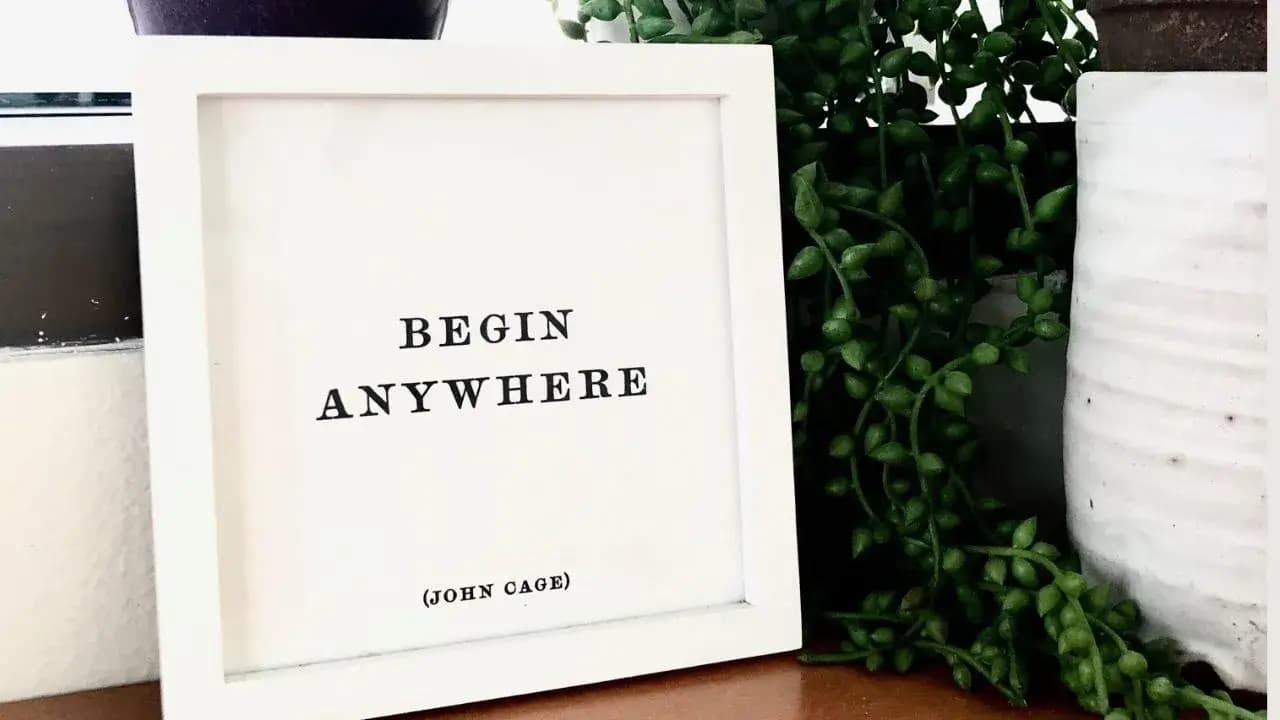Every litigator recognizes that punch to the stomach when you finish reading the closing sentences of opposing counsel's brief, or an unfavorable order you're set to appeal. The tightening of your neck muscles; the outrage coupled with a tinge of pure, white-hot panic at the sheer enormity of the task before you—–to respond to arguments that (in your eyes) have obviously misconstrued the truth, but suddenly seem disturbingly persuasive. As lawyers, we see the chaos tangled in the complex, technical prose. We process it. We identify the cracks in the logic, the missing parts of our client's story. And our herculean task is to shape a formal, rigid pleading into prose that changes hearts and minds.
The best appellate writer I know keeps a John Cage quote framed in her office and placed strategically within eyesight from her desk: ‘Begin anywhere.’ Begin anywhere, because the act of starting to write is the only thing that will shake the doubt and the dust off of you. Let the flow of formulating sentences to the rhythm of your clicking keyboard remind you that you’re a powerful advocate, and your words have the power to change things.
Early in my career as a state Assistant Attorney General, the first job where I regularly had to draft a high volume of legal briefs on my own, a cloud of crushing deadlines lurked over my desk. I would meet the moment of starting to write with so much uncertainty: following exhaustive research trails, reading over legal brief templates by my colleagues, highlighting an absurd amount of quotations, as if enough fluorescent yellow passages would light my path to an outline. I would take a break only to return to my screen and re-read what I’d written, aghast at how amateurish my words sounded.
And yet, as I hammered those first briefs into existence, I remember the surprising joy of the blank-page freedom to speak directly to a powerful judge, to challenge the court to see things differently. Accustomed to the impatient pace of law school and workplace discussion, I frankly wasn't used to having a forum to craft and share my views, uninterrupted and at a thoughtful pace. That may be part of the reason I've always loved the legal writing process. It feels like a rare, sacred space to create an elegant expression of logic and reason. A place to share an authoritative explanation of the truth, each assertion backed by concrete legal authority. When you've read enough all-caps arguments in the Facebook comments, you gain an unholy appreciation for the value of citations.
And I now realize that the most seasoned litigator, judge, law clerk, opposing counsel, the in-house attorney–we all face that moment when we begin to write. A moment where we're humbled by the responsibility and trust placed in us, questioning whether our theory of the case has unseen holes, suspecting that our effort is futile in a judicial system with so many punishing hoops and trap doors. But we have a special kind of courage–we know that we have to begin somewhere; to forge something out of nothing. And yes, the first draft is always a rough draft.
In founding Clearbrief, I'm reminded of that moment. We're building a legal technology company, but we’re also building a community around the creativity and craft of excellent legal writing. Our goal as technologists is to provide you with modern (and even fun!) tech that enhances your writing flow, and reduces the many stressful tasks associated with litigation.
But modernizing litigation is not just about tech. It’s about collectively sharing our insights from the trenches. So much of what we learn as attorneys over the years is unspoken, nuanced, and kept hidden behind a strict veil of professionalism (and somehow, stubbornly, mounds of paper in accordion files), preventing newcomers from understanding the path to success in this work. By sharing a glimpse of the writing process from a wide variety of legal writers, we believe ClearBrief can create a space for innovation.
If you'd like to join our growing community of attorneys interested in exploring what it means to modernize litigation and the legal writing process, I invite you to sign up here. You'll receive an invitation for early access to our private beta tools that vastly improve the brief writing and filing process, and put money back in your pocket. And you're invited to join our private community, Let's Be Brief, where we're having candid and funny conversations with only the most tasteful sprinkling of memes. There's so much in store as we launch Clearbrief and take bold steps towards modernizing the justice system. Let's begin, together.



